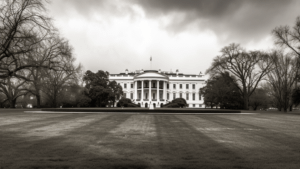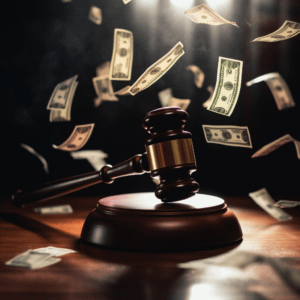In 2008, the United States experienced a financial crisis so severe that it was likened to the Great Depression of the 1920s. Known as the ‘Great Recession’, this crisis was, in many ways, a result of predatory lending and far-reaching financial fraud.
In an effort to prevent another massive leeching of resources from the American economy, the Dodd-Frank Wall Street Reform and Consumer Protection Act (Dodd-Frank Act) was signed into law by the Obama administration in 2010. This regulatory law addressed many areas of fraud, speculation, and financial double-dipping into the market.

If you have evidence of financial fraud or predatory lending practices, you may be able to qualify as a whistleblower under the Dodd-Frank Act. A whistleblower is entitled to certain protections and rewards for coming forward to report fraud. Our qui tam attorneys at Tycko & Zavareei LLP can help you understand the significance of the information you have to offer and guide you on how to protect your interests. Dodd-Frank whistleblower protections are extensive, and our team is dedicated to making sure our clients receive the best treatment possible.
What is the Dodd-Frank Act?
The Dodd-Frank Wall Street reform was more than necessary by the time the Act was enforced in 2010. It sought to restore some stability to the financial system that was plagued by economic conditions such as:
- Credit rating agencies churning out misleading scores to promote lending
- Widespread derivatives, like credit default swaps
- Financial entities, such as banks, engaging in “double-dipping” by investing or running hedge funds or private equity firms, using their own accounts
- Mortgage originators steering borrowers toward options that guarantee the highest payouts for lenders and the worst possible terms for homeowners
- Oblique credit card agreements
- Risky loans, widespread speculation, and a general lack of oversight
- Wall Street misreporting and fraud
Due to these and more prevalent conditions, the Dodd-Frank Act was enacted to act as a significant piece of legislation enhancing accountability and transparency in lending, encouraging consumer protection in mortgages, and having comprehensive whistleblower rules, among others. For instance, the Act created the Consumer Financial Protection Bureau (CFPB) to help implement oversight and accountability in the mortgage lending process. Another significant change was in terms of the expansion of whistleblower protections. Blowing the whistle on financial fraud is an honorable, important act. The Dodd-Frank Act 
The Act was partially rolled back in 2018 under the Trump administration, facing criticism that it reduced liquidity in the market.
Dodd-Frank Act: Summary
While the Trump administration watered down some provisions of the financial statute, it continues to have several facets still in play today:
- Financial oversight and stability: By introducing new rules and hurdles into the process of financial lending, the Dodd-Frank Act serves as a safety net for consumers seeking to sign up for mortgages, open credit cards, and take on new debt. It also helps support certain key banks or financial institutions that were deemed “too big to fail” from defaulting on risky loans or bad practices.
- Whistleblower program: Section 922 of the Dodd-Frank Act signed into law additional whistleblower rules and protections. It strengthened the original whistleblower provisions granted under the Sarbanes-Oxley Act of 2002, and created a mandatory standard for whistleblower payouts for original, useful information for reporting fraud. It also extended the covered period of reporting against an employer from 90 days to 180 days.
- Consumer Financial Protection Bureau: The subprime mortgage market was widely understood as a chief player in the 2008 financial meltdown. The creation of CFPB was in direct response to this crisis. It is tasked with helping consumers understand the terms of mortgages, as well as steering brokers away from earning higher commissions on higher-interest loans.
- Volcker Rule: The Volcker Rule limits banks from engaging in risky, speculative action using their own accounts, like investing or sponsoring hedge funds or private equity firms. Banks with less than $10 billion in total consolidated assets and liabilities or less than 5 percent of total consolidated assets are excluded from this rule.
- Securities and Exchange Commission (SEC): Under the Dodd-Frank Act, the SEC Office of Credit Ratings attempts to enhance accountability in how credit ratings are given in order to reduce fraud by credit ranking entities.
What Activities are Protected Under the Dodd-Frank Act?
Dodd-Frank Act whistleblowers may qualify for protections for blowing the whistle on:
- Providing original information about fraud to an enforcement agency
- Coming forward with disclosures required or protected by the Sarbanes-Oxley Act
- Exposing fraudulent practices under the Securities Exchange Act of 1934
- Testifying, initiating, or assisting in the investigation based on these types of disclosures
How Does the Dodd-Frank Act Protect Whistleblowers?
The Dodd-Frank Act is designed to protect whistleblowers from all forms of employer retaliation and attempts to impede reporting. Some examples of prohibited retaliation by employers include:
Threats
- Reduction of pay or hours
- Harassment
- Blacklisting
- Denial of benefits
- Refusal to hire or rehire
- Discrimination
- Suspension
- Demotion
- Hindering career advancement
- Termination
Does the Dodd-Frank Act Protect Auditors and Compliance Personnel?
Yes, auditors and other mandatory compliance personnel may be protected under the Dodd-Frank Act for making disclosures to the SEC.
In order to receive whistleblower protections, auditors must meet at least one of the following requirements:
- A reasonable belief that the disclosure is necessary to prevent conduct likely to cause “substantial injury” to the entity or investors’ financial interest or property
- A reasonable belief the entity is engaging in conduct that may delay a misconduct investigation
Auditors and other compliance personnel may only be protected under SEC guidelines if they have reported their information directly to the SEC, or after the passage of 120 days since an internal disclosure.
 Which Agency Enforces the Dodd-Frank Act’s Anti-Retaliation Provision?
Which Agency Enforces the Dodd-Frank Act’s Anti-Retaliation Provision?
The SEC enforces all anti-retaliatory provisions of the Dodd-Frank Whistleblower program. Dodd-Frank whistleblower rewards and protections are governed by the SEC. Employees who have been discriminated against by their employers may be eligible to receive up to double back pay and possible reinstatement after taking legal action.
Dodd-Frank Whistleblower Rewards
Financial fraud whistleblowing is an effective way to expose corporate wrongdoings and prevent corruption in the market. The Dodd-Frank Whistleblower programs have a mandatory reward structure of 10 to 30 percent of the overall recovery for whistleblowers. Rewards of 30 percent are often given for especially valuable information, or particularly willful compliance. In cases of extensive or ongoing fraud, these may number into thousands or millions of dollars.
Dodd-Frank Act Whistleblower Protections: FAQs
The following are some of the frequently asked questions about Dodd-Frank whistleblower protection:
1. Does the Dodd-Frank Act protect internal disclosures?
No, internal disclosures, such as those required by auditors or compliance personnel, are not protected under the Dodd-Frank Act. However, reporting to the SEC makes a whistleblower eligible for protections, even if they have also reported the same information internally.
2. Can the SEC whistleblowers remain anonymous under the Dodd-Frank Act?
By working with an SEC Dodd-Frank whistleblower lawyer, whistleblowers are more likely to remain anonymous. Typically, it is possible to remain anonymous while filing an SEC whistleblower report. However, certain exceptions may apply to your case, which is why it is important to consult a qui tam attorney for assistance.
3. What is the statute of limitations for disclosures under the Dodd-Frank Act?
In an effort to maximize the possibility of reporting wrongdoings, the Dodd-Frank Act increased the statute of limitations for the disclosure of fraud to six years.
4. Does the Dodd-Frank Act allow for special damages when it comes to emotional and reputational harm?
No, you may not receive special damages under the Dodd-Frank Act, even in cases of employer retaliation.
5. What damages are SEC whistleblowers entitled to under the Dodd-Frank Act?
If you have been discriminated against by your employer for reporting fraud to the SEC, you may be eligible to receive:
- Double back pay, with interest
- Reinstatement, or front pay until you are employed again in cases where reinstatement is not possible
- Reasonable legal fees, such as attorneys’ fees, litigation costs, and expert witness fees
6. Should corporate whistleblowers bring cases under both the Dodd-Frank Act and the Sarbanes-Oxley Act?
Financial fraud whistleblowers may be able to receive double protection by bringing claims under both the Dodd-Frank Act and the Sarbanes-Oxley Act.
7. What advantages does the Dodd-Frank Act provide compared to the Sarbanes-Oxley Act?

Whistleblowers may also receive further legal remedies in cases of employer retaliation, such as double back pay plus interest. The Dodd-Frank Act does not provide a standard of administrative exhaustion and allows for a broader scope of coverage for the types of companies that can be sued.
At the same time, there may be certain disadvantages under the Dodd-Frank Act as well, like lack of protection from internal whistleblowing in all instances, and limitation against claiming special damages.
8. Which agencies have programs that fall under the Dodd-Frank Act?
The following agencies have programs that come under the ambit of the Dodd-Frank Act:
- The Securities and Exchange Commission
- The Commodity Futures Trading Commission
- The Foreign Corrupt Practices Act
Reporting to any of these agencies may qualify you to claim the mandatory reward of up to 30 percent of settlements, as well as certain protections under the Dodd-Frank Act.
If you have a specific question about your case, you may want to reach out directly to the qui tam experts at Tycko & Zavareei LLP for a free initial consultation.
Ask Our Attorneys About the Dodd-Frank Whistleblower Protections
If you have information about financial fraud, our whistleblower attorneys are here to guide you. We can help you understand whether you qualify for protection under the Dodd-Frank whistleblower program, and help protect your interests while fighting for what is right.
If you have information about financial fraud that you believe falls under the Dodd-Frank Act, it is best you come forward immediately and not wait too long. This is because the longer you wait, the higher the chances of the statute of limitations elapsing or key evidence getting destroyed. At Tycko & Zavareei LLP, we commit ourselves to doing our best and have years of experience in dealing with qui tam cases. You may reach out to our whistleblower attorneys for a confidential consultation today.


 Threats
Threats Which Agency Enforces the Dodd-Frank Act’s Anti-Retaliation Provision?
Which Agency Enforces the Dodd-Frank Act’s Anti-Retaliation Provision?